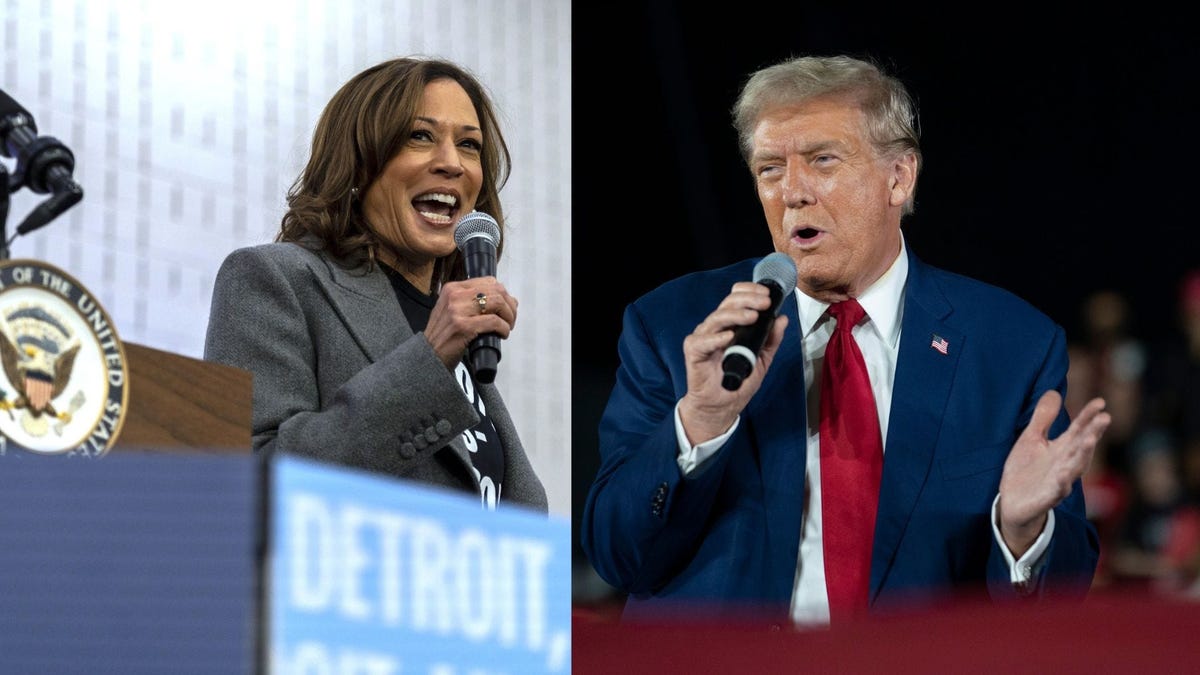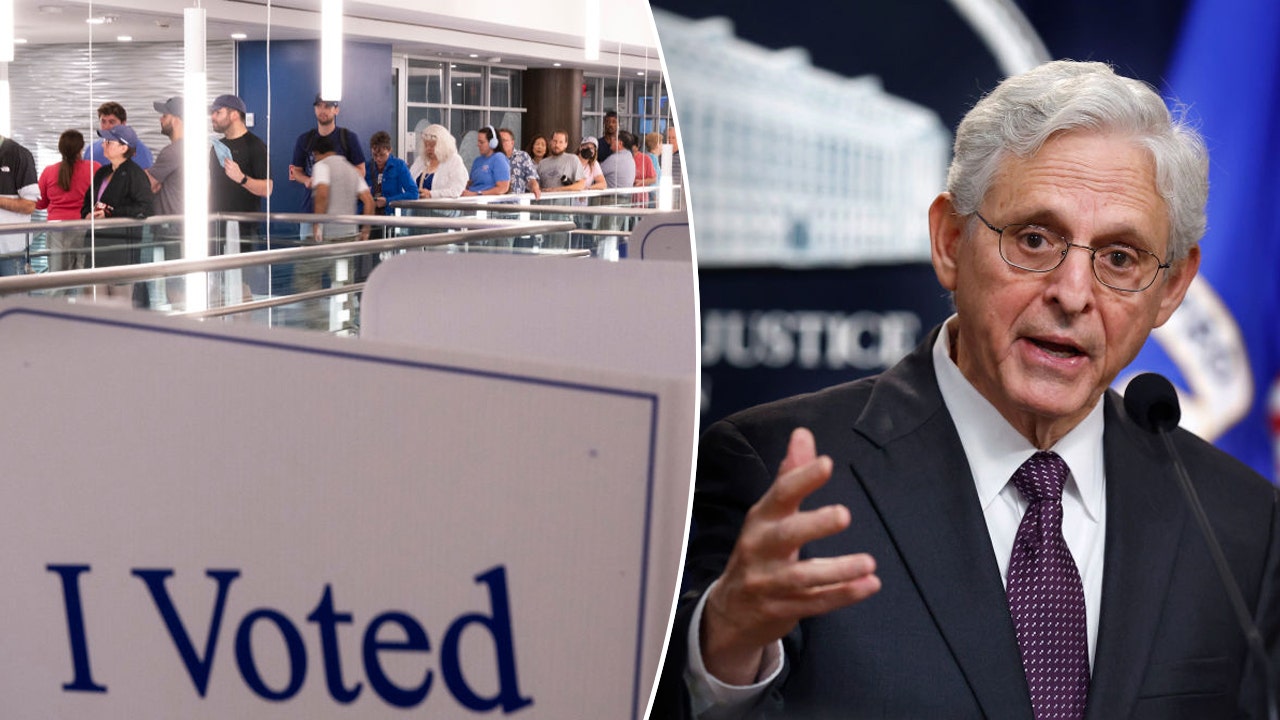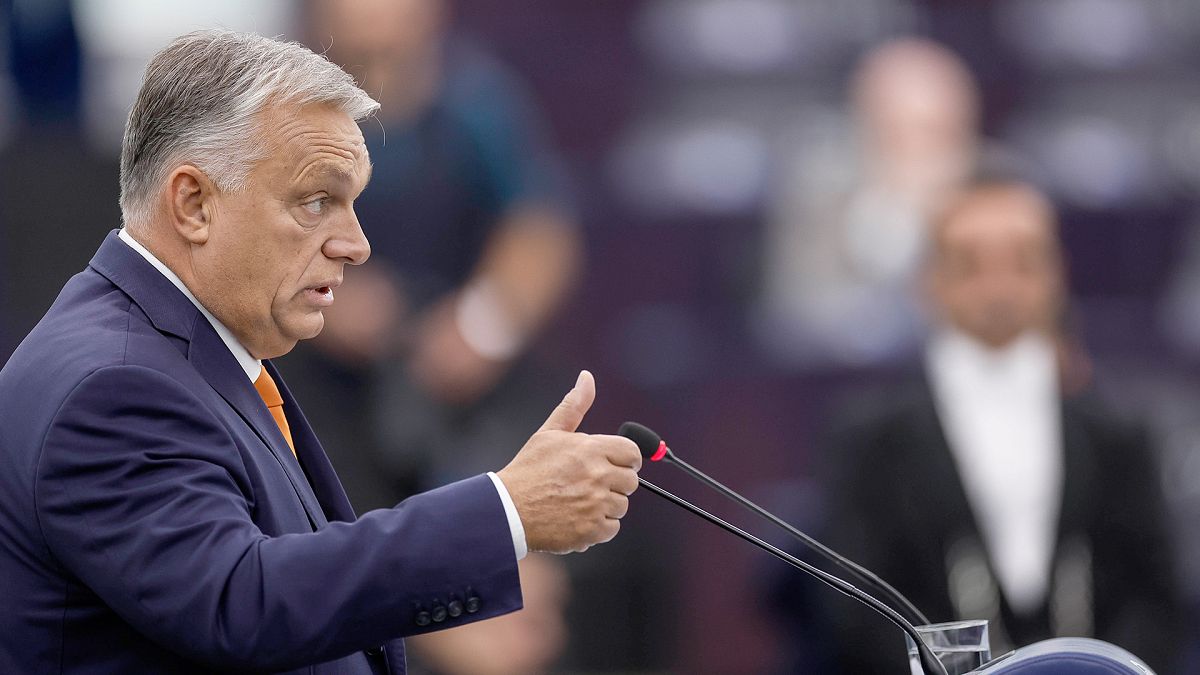Sports
Justin Herbert, Chargers had chances to beat the Chiefs but limped at the finish line
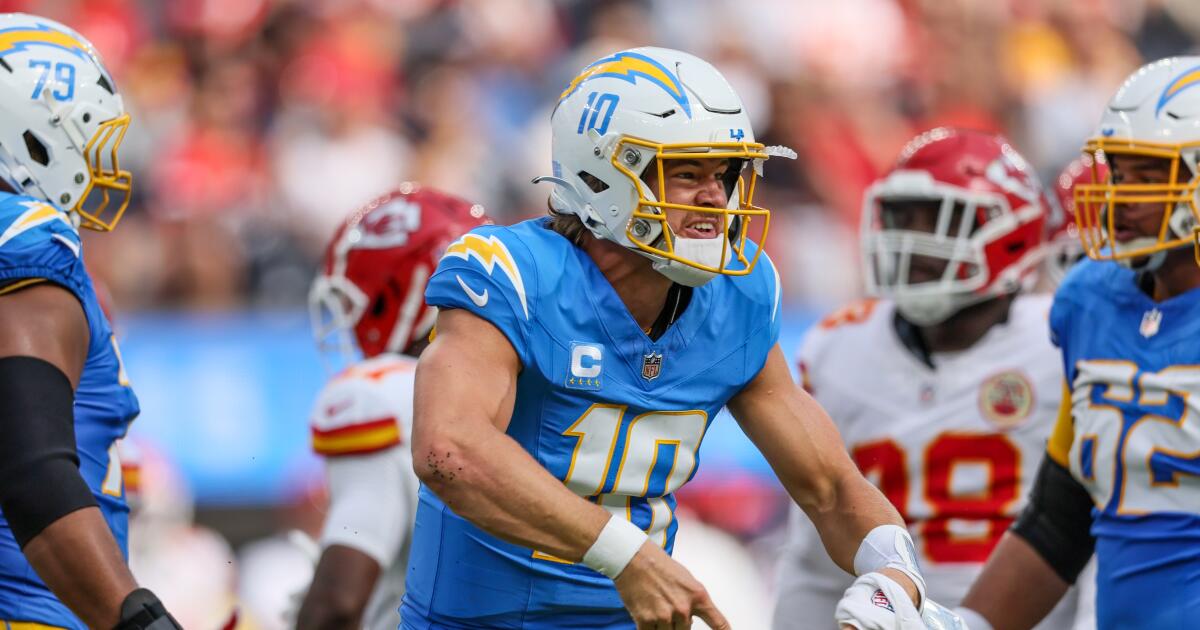
Facing a tie score in the fourth quarter for a second consecutive week, the Chargers lined up with a chance to make a strong statement. Fourth and one from the Kansas City three-yard line, Justin Herbert dropped back. Before he could even set his feet to pass, Kansas City’s Chris Jones was in the quarterback’s face.
Herbert could only throw the best chance to knock off their AFC West rival through the back of the end zone.
The quarterback played through a high-ankle sprain for a second consecutive week but couldn’t will his shorthanded team to an upset over the Chiefs, who did convert on their critical chances in the fourth quarter Sunday to win 17-10 at SoFi Stadium.
The two-time defending Super Bowl champions won their sixth straight game over the Chargers (2-2) with five of the six coming by one possession.
Outside linebacker Khalil Mack, now in his third season with the Chargers, said this week that the championship pedigree of the Chiefs shows up as the team “find[s] ways to win games.”
The statement he made with equal parts envy and awe in front of his locker Thursday played out on the field.
The Chargers (2-2) came up empty from the three-yard line. The Chiefs (4-0) pieced together the game-winning five-play, 60-yard drive in the fourth quarter that broke a 10-10 tie.
“We had a chance to do something special, man,” Mack said, “and wasn’t able to hold on to the rope when it mattered the most.”
Including a 20-10 loss to the Steelers last week, the Chargers have not scored a second-half point in consecutive games. The Chargers, who allowed just one red zone touchdown in the first three games, gave up the decisive score on a two-yard touchdown run by Samaje Perine.
The Chargers dominated the first quarter behind a shorthanded defense that forced takeaways on each of the Chiefs’ first two drives.
A fumble forced by Tuli Tuipulotu and recovered by Elijah Molden led to a seven-yard touchdown pass from Herbert to Ladd McConkey, who tapped his toes in the back of the end zone for his second NFL touchdown.
Chargers receiver Ladd McConkey (15) hauls in a touchdown pass in the first half behind Chiefs safety Bryan Cook (6).
(Robert Gauthier / Los Angeles Times)
But Herbert got up from the play limping after absorbing a strong hit from Kansas City defensive end Malik Herring. Already hobbled with a high-right ankle sprain, Herbert was sacked twice and hit 10 times behind an offensive line without starting tackles Rashawn Slater (pectoral) and Joe Alt (knee).
Herbert finished with 179 yards and one touchdown on 16-of-27 passing.
“Gotta get him just a little bit more time,” Chargers coach Jim Harbaugh said. “Some of the throws he made, some of the plays he made were incredible.”
The patchwork offensive line that featured Sam Mustipher at starting right guard one day after the third-string center was elevated from the practice squad struggled in all aspects. The Chargers rushed for just 55 yards and had nine penalties, including five from offensive linemen.
Cornerback Kristian Fulton intercepted a pass in the second quarter and returned it 29 yards to the Kansas City 20. However, penalties by Mustipher and new left tackle Jamaree Salyer turned that opportunity into a 50-yard field goal and a 10-0 lead with 3:53 left in the first quarter.
That kept the Chiefs well within striking distance and they finally took advantage in the second quarter on a 54-yard touchdown pass from Patrick Mahomes to Xavier Worthy to draw within three.
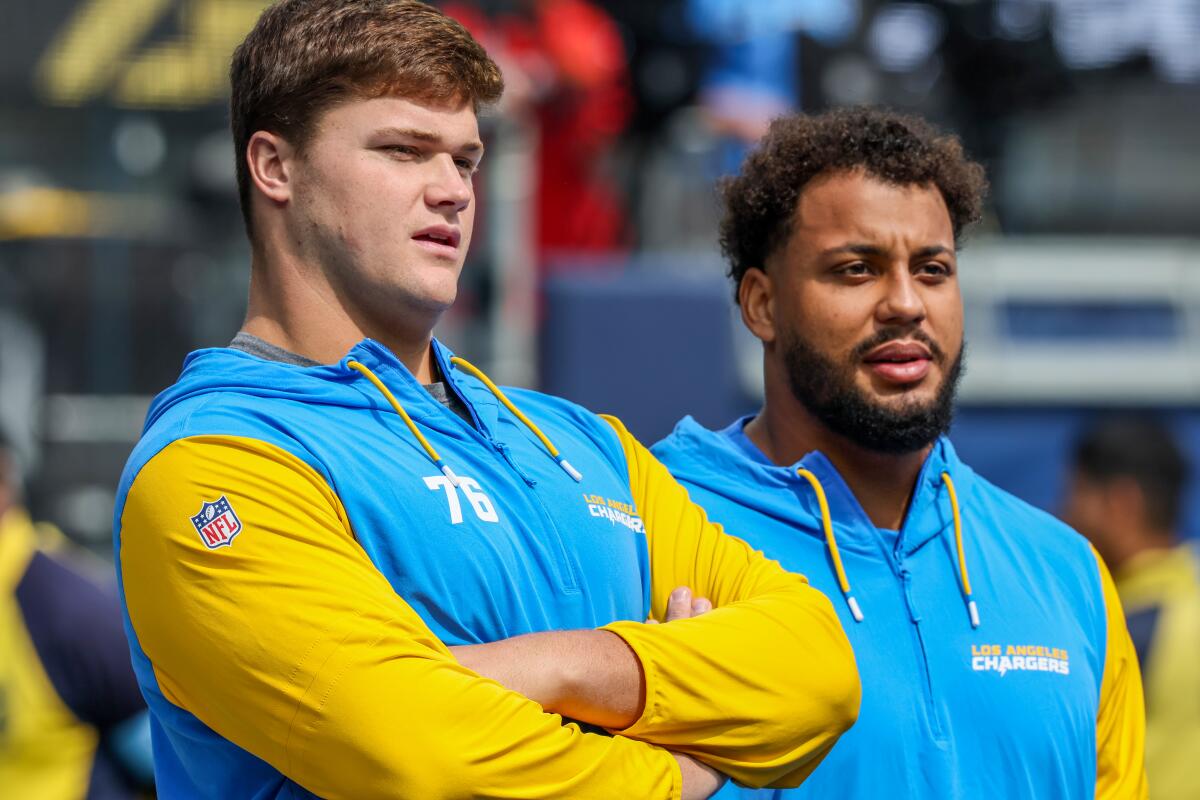
Chargers’ injured starting offensive tackles Joe Alt (left) and Rashawn Slater watch action against the Chiefs.
(Robert Gauthier/Los Angeles Times)
“We gotta be more disciplined,” left guard Zion Johnson said. “But I think that’s the thing, that we can go to the drawing board, and fix those things and the future’s bright once we fix those things.”
The upcoming off week that at first seemed too early is now coming at the right time for the Chargers, who were also without safety Derwin James Jr. (suspension) and outside linebacker Joey Bosa (hip).
Herbert, who played with an additional brace around his ankle Sunday, finished the game but came up limping after several hits. Getting Slater and Alt back will be necessary to stabilize an offense that wants to rely on its rushing attack, which has been held to 116 yards over the last two games.
Mack, now in his 11th year in the league, will focus on nursing his ailing hip and knee. After consecutive losses, however, the Chargers still are expected to practice once during the off week.
“Can’t really think about this as a bye week,” Mack said, “gotta think about it as a work week.”

Sports
Walter Payton and Matt Suhey, backfield mates turned brothers, and a bond that transcends time

Eleven years and a lot of life had happened since the tailback and the fullback ran together. The old teammates didn’t socialize much even though both remained in the Chicago area.
Matt Suhey, the fullback, traded soybean meal futures and owned a bottled water company. He left home for the Board of Trade every morning at 5:30, returned home to his family at 6:30 in the evening and didn’t have time for much else.
Walter Payton was in perpetual motion — the tailback was always most comfortable that way. He traveled about four days a week for appearances, speeches and various business ventures. He held ownership stakes in an automobile racing team, nightclubs, a restaurant and a heavy equipment company. He oversaw a charitable foundation, was a member of the Bears’ board of directors, and worked diligently and passionately in pursuit of an NFL expansion team in St. Louis.
But one day between Christmas in 1998 and New Year’s Day, Payton asked Suhey to meet for dinner. They exchanged hugs in a private room at Millrose in Barrington, not far from Payton’s home, and started laughing like they did in the old days. Suhey joked about Payton’s weight loss, probably close to 50 pounds.
Payton turned on him.
“I’ve got a problem,” he said, jutting his face toward Suhey’s.
“What do you mean?” Suhey said.
Payton had been diagnosed with primary sclerosing cholangitis, a rare liver disease. He also had cancer of the bile duct, and it was spreading rapidly.
He needed a new liver.
Two days after their dinner, Suhey called Payton, who told him he was going to the Mayo Clinic. Suhey’s purpose on the football field had been to make sure Payton got to where he wanted to be, so the fullback told the tailback he was coming with him. Payton followed his lead.
In the months that followed and as the clock on Payton’s life neared zero, they still laughed together. “We’re doing a new version of ‘Brian’s Song,’” Payton said. “The only difference is the Black guy dies.”
“Brian’s Song” won four Emmy Awards and was the most-watched TV movie in 1971, when made-for-television movies were appointment viewing. Starring Billy Dee Williams and James Caan, it told the story of the odd-couple friendship between Bears running backs Gale Sayers and Brian Piccolo as Piccolo was dying from cancer.
Four years after the movie debuted, the Bears chose Payton with the fourth pick of the draft. By 1980, when the Bears selected Suhey in the second round of the draft, Payton had been voted All-Pro four times, NFL Most Valuable Player and NFL Man of the Year. He was celebrated for his style — refusing to run out of bounds, choosing punishment over preservation, popping up from the big hit with a smile and no indication of pain.
Initially, Payton shunned Suhey. The fullback who helped make Payton a luminary was Roland Harper, who was also Payton’s closest confidant and hunting partner. But Harper’s knees were betraying him, and everyone could see Suhey was drafted to replace him. On the rare occasions when Payton acknowledged Suhey, he called him “short white boy.”
Suhey and Payton were Chicago teammates for eight seasons. (Courtesy of the Chicago Bears)
In the opening game of Suhey’s second season against the Packers, Harper was injured. With 32 seconds remaining and the Bears trailing by seven, Suhey took a handoff at the Packers’ 3 and was one step away from scoring when he fumbled. The Packers recovered and won the game.
Suhey was devastated. As he walked to the locker room, Payton smiled at him and asked if he ever had a paper route. Suhey asked what he was talking about. With a giggle, Payton told him if he ever fumbled like that again he would need to find a paper route because his football career would be over. Suhey couldn’t help but laugh.
The following Sunday, Payton fumbled twice, including on the 1-yard line, in a loss to the 49ers. After the flight home from San Francisco, Suhey and running back Dave Williams got in Suhey’s car to drive to The Snuggery in Edison Park. Then Suhey heard a knock on his window.
“Where you going?” Payton asked.
Payton went, too. For the first time, Payton and Suhey had a real conversation, talking well into Monday morning. When Suhey went to Halas Hall the following Wednesday, something had changed.
Before long, their relationship became a marriage without the rings and roses, a lifetime commitment to the other’s well-being, a personal co-dependency and business partnership.
They were wired differently as football players. Suhey was obsessive about details and assignments; Payton played like a poet freestyles. In “Never Die Easy,” his autobiography, Payton jokingly complained that Suhey’s copious questions in meetings took years off his life. But the fullback’s steadiness grounded Payton.
Although it seemed as if they had nothing in common except the game they loved, there was a connective tissue between them that couldn’t be quantified. They usually lined up in the I-formation, which they made the We-formation. Payton seemed to know how Suhey would block, and Suhey seemed to understand where Payton would step.
They worked out hand signals to communicate presnap adjustments, which were critical because quarterback Jim McMahon audibled frequently. “If we were going to make a mistake, my thing was we both were going to be wrong,” Suhey says.

GO DEEPER
Football injuries nearly destroyed Jim McMahon. Somehow, he keeps coming back
When Payton broke the all-time rushing record with a 6-yard run against the Saints in 1984, Suhey threw the lead block, crushing linebacker Dennis Winston off-tackle. Afterward, Payton took Suhey to a blues bar on the South Side of Chicago where they partied with Jim Brown, whose record Payton broke. Then Payton gifted Suhey with a shotgun worth about $10,000.
Suhey and Payton played golf together. Suhey remembers him often hitting a 1-iron off the tee. They shot pool and played a lot of cards, Hearts being their favorite. On bus rides, they sat in aisle seats across from one another. Before road games, they sometimes roomed together.
Bears middle linebacker Mike Singletary had a neighboring hotel room to the running backs the week before Super Bowl XX.
“Whenever practice was finished, Walter would fire up the music box, throw open his hotel door and start jamming,” Singletary wrote in “Calling The Shots.” “You could hear the two of them next door dancing, wrestling, acting like a couple of 12-year-olds.”
Their lockers were side by side in an area of the locker room Payton called “The Ghetto.” Suhey was the only white player in “The Ghetto,” but he belonged as much as anyone, partly because of his relationship with Payton.
“I never thought of him as Walter Payton, my Black friend,” Suhey says. “And I’m pretty sure he didn’t think of me as his white friend.”
Payton said Suhey was one of the first white people he knew well.
“We were Ebony and Ivory before Stevie Wonder and Paul McCartney,” Payton once said. “I think our relationship helped break down a lot of lines, a lot of racial lines, on the team and some said in the city.”
In a preseason game, Bears offensive linemen Mark Bortz and Keith Van Horne got into it with Cowboys defensive lineman Randy White after the Cowboys were unnecessarily rough with Payton. Chaos reigned. That’s when Payton wanted Suhey with him.
“Back-to-back!” Payton told Suhey, locking arms with him, their backs pressed against each other’s.
“What’s this?” Suhey said.
“Back-to-back,” Payton said. “That’s how we take them.”
The great Payton was in a stratosphere of his own in the team hierarchy, but Suhey knew how to bring him down a level. When Payton teased Suhey for going to Penn State, Suhey asked him where Payton’s alma mater, Jackson State, was located. When Suhey started losing his hair, Payton complained about the reflection from his head. Suhey ribbed Payton about his Jheri curl.
Suhey was a foil for Payton’s practical jokes. Payton called Suhey’s wife, Donna, and, with a high-pitched voice, told her he was Matt’s pregnant girlfriend. Donna believed Payton until he cracked up.
Once, Payton lined up behind Suhey in an I-formation in practice, and Payton pulled down Suhey’s pants as Suhey was about to take off. A photograph of the prank later became famous. Suhey has a copy in his office.
When the Bears went to Platteville for training camp in 1984, Payton didn’t want to stay in a dorm room, so he rented a motorhome. Then Payton and Suhey drove it over four hours from Chicago.
“We were like Ralph Kramden and Ed Norton (from ‘The Honeymooners’),” Suhey says. “We didn’t know where we were going, and the motorhome was so wide on narrow roads. We pulled through a McDonald’s drive-through in it. We had a lot of laughs.”

Suhey, Payton and Calvin Thomas are surrounded by reporters ahead of Super Bowl XX. (Courtesy of the Chicago Bears)
Payton wasn’t always goofing around. He could be moody and mercurial, and he kept secrets. Suhey, more than anyone in Payton’s football life, always seemed to have the right touch, knowing when and how to give him space or draw him out.
Payton was crushed after fumbling on the Bears’ second offensive play of the Super Bowl. He went to the sideline and talked to Suhey. There was no redemption; Payton ran for only 61 yards on 22 carries and didn’t score. Rather than celebrate the victory, he sulked.
“He was pretty upset,” Suhey says. “It was one of his dreams to score a touchdown in the Super Bowl.”
Instead of waiting for the team flight home the next morning, Payton returned on a private jet, taking only his son, Jarrett, and Suhey. That night, Suhey knew better than to tease Payton about his Super Bowl performance. But later, he couldn’t help himself.
“You may be the greatest player ever in the NFL, but I scored a touchdown in the Super Bowl and you didn’t,” he told him.
“Read between the lines,” Payton said, holding up his index finger, middle finger and ring finger.
Suhey’s youngest son, Scott, was born on March 4, 1994 (3/4/94) at 10:34 a.m., and Suhey called his old teammate, No. 34. He told Payton how the numbers aligned.
“I’m his godfather,” Payton responded. And he was.
After Payton became ill, he could no longer drive. But he was uncomfortable staying in one place all day, so Suhey took him for rides in his Mercedes 430. Suhey estimates they went on as many as 40 drives. Payton, the one-time race car driver, criticized Suhey’s cautious approach behind the wheel, telling him his driving would kill him before the cancer did.
Dairy Queen was a regular destination, but often they just drove. When Suhey would tire, he’d ask Payton if he wanted to go home. “Keep driving,” was often the reply.
“I think he was trying to soak up those moments,” Jarrett says.
“Sometimes on those rides, he was chatty as a bird,” Suhey says. “Other times he wouldn’t say a word. We talked about his favorite restaurants, and some he wanted to go to. He loved P.F. Chang’s, and we went there. I wanted to take him to Francesco’s Hole in the Wall, but we never made it.”
Late in Payton’s life, he asked Suhey to drive him to Singletary’s house, then gave him directions. Suhey rang the bell, but Singletary didn’t answer. That’s when Suhey looked back to see Payton cracking up. Suhey had been had again.
“Matt helped me laugh and after I got sick, I needed that more than ever,” Payton said.
Payton refused to allow anyone to accompany him to radiation and chemo treatments except Suhey, who took him to about nine doctor’s appointments. Payton usually wanted to have his chemo administered at midnight when his presence wouldn’t create a stir. Suhey was by his side.
“Walter was a loner,” his wife, Connie, says. “There weren’t a lot of people he would hang out with. He was strange like that. But I knew Matt was special to him and near to his heart because he allowed him to be in his space.”
Connie says she could count on one hand the number of people her husband allowed at the Barrington house during those days. Among them were Singletary, business partner Mike Lanigan and Suhey, who visited four or five times weekly.
Payton showed Suhey his collection of firearms, blades and bows. They watched TV together, mostly sporting events and movies. They played the comedy “Major Payne” over and over — Payton did a spot-on imitation of Damon Wayans’ character. It wasn’t unusual for Suhey to doze off in front of the television. He once woke, found Payton staring at him and joked that he was looking at him a little too lovingly.
Payton’s meds made him sleepy and listless. During one difficult stretch, he stopped eating. Only Suhey could get him to eat and take more fluids. “He could move Walter in a way that sometimes we couldn’t,” Connie says.
Sometimes Suhey slept over in the bedroom belonging to Jarrett or his sister, Brittney. The kids had to find somewhere else to sleep. Whenever Suhey left, he woke Payton with a kiss on the forehead and told him he loved him. Payton always asked, “When are you coming back?”
As Payton’s eyes yellowed and his weight loss neared 100 pounds, he and his former teammate didn’t look back and reminisce much about football as most old players would.
They looked forward, discussing what would become of Payton’s business empire, his children and his wife.
They talked about his legacy.
They talked about his soul.

Payton compiled over 7,000 rushing yards and scored 39 touchdowns on the ground during the years Suhey was his primary lead blocker. (Courtesy of the Chicago Bears)
Suhey remembers the early afternoon phone call that came on Nov. 1, 25 years ago Friday. He had been expecting it for a while, but the news stunned him just the same. He drove to Payton’s house to be with the family.
Payton had named Suhey the executor of his estate and put him in charge of his name, image and likeness rights. Suhey was involved in founding the Walter Payton Liver Center at the University of Illinois Hospital and Walter Payton College Preparatory High School. According to Jarrett, Suhey continues to lord over all things sold under the Walter Payton name — and has never asked for anything in return.
“I had no clue about a lot of business dealings, so I was very thankful for Matt because I could trust him to be honest and true,” Connie says. “For me, it was a big deal.”
Suhey has advised Jarrett on investments, including his stakes in Flagship on the Fox sports bar, Jarrett Payton’s All-American Wheat Ale and Payton Premium Coffee.
Suhey’s support has been emotional as much as financial. Connie considers him a big brother; to Jarrett, he is a father figure. Suhey spoke to Jarrett about the sanctity of the vows he took when he married Trisha. When Jarrett’s son, Jaden, was born, Suhey calmed his nerves, assuring him parenthood would come naturally in time.
Jarrett texts Suhey photos of his children. Suhey has been to their birthday parties. Jarrett’s family vacationed with the Suheys at their Arizona home.
“He tells me every time I talk to him — every time,” Jarrett says. “‘Do you know how proud your father is of you?’”
The anniversary of Payton’s death is always a difficult day for Suhey.
On a recent anniversary, the fullback found himself alone in an old church that was dark except for streams of sunlight beaming through stained glass. He lit a votive candle. Then another. Two candles became four, became 10, became 20 until each one was aflame. He stuffed $100 in the collection slot.
Then the fullback sat alone in silence thinking about the days he and the tailback ran together. And in the sacred, warm glow of candlelight, he prayed that one day they would run together again.
(Illustration: Meech Robinson / The Athletic; photos courtesy of the Chicago Bears)
Sports
Jets player lets go of ball inches before scoring touchdown, resulting in mind-boggling turnover
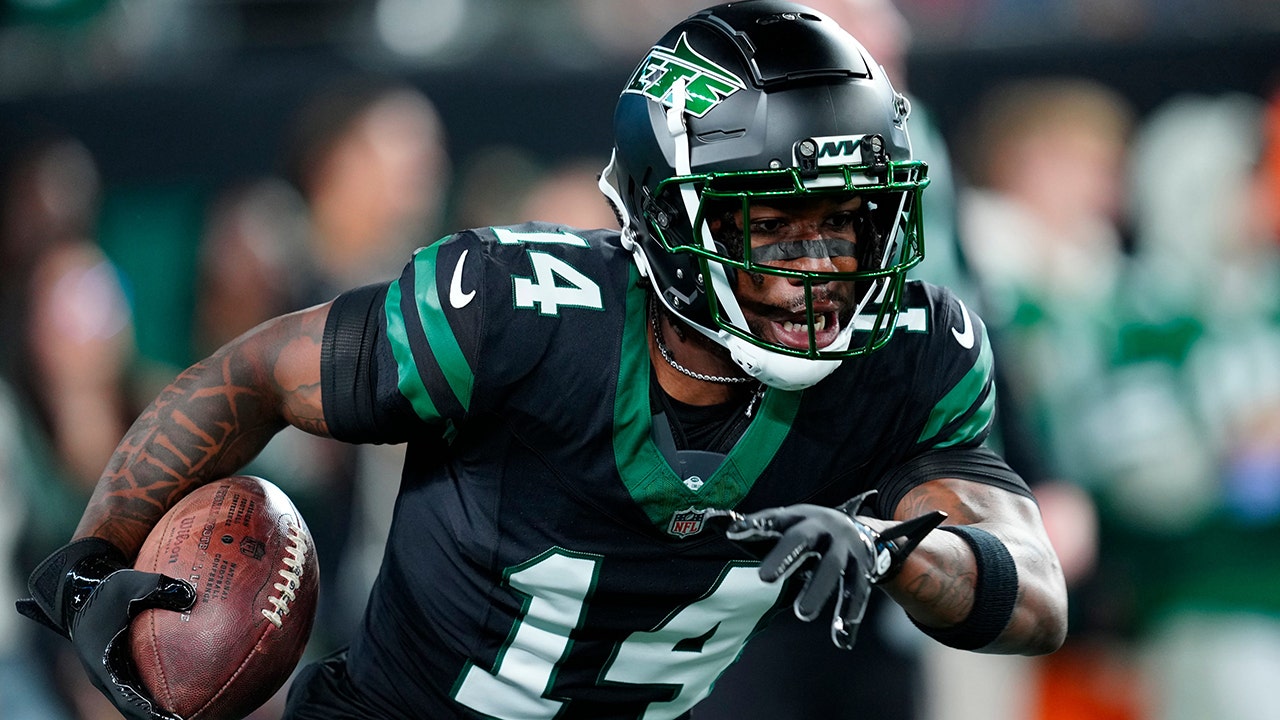
Malachi Corley was literally an inch away from scoring his first career touchdown.
Instead, he committed a turnover.
The New York Jets’ game began in typical Jets fashion. In their first three plays, Aaron Rodgers overthrew Davante Adams, Breece Hall dropped a pass and Rodgers was sacked.
It couldn’t get much worse, right? Wrong.
New York Jets wide receiver Malachi Corley prepares for a game Thursday, Oct. 31, 2024, in East Rutherford, N.J. (Kevin R. Wexler-NorthJersey.com/USA Today Network via Imagn Images)
In their ensuing defensive drive, the Jets committed a roughing the kicker penalty on 4th and 21, extending the drive.
OK, that must be it, right? Nope!
Corley, a rookie, took a pitch from Rodgers and found the open field, going untouched with blockers up front for a touchdown.
There was just one problem. He let go of the ball right before the goal line.
While the Jets celebrated what they thought was a touchdown, the referees went to review the play, and they confirmed Corley had dropped the ball too early. So, the play resulted in a touchback.
The Jets selected Corley in the third round of this year’s draft out of Western Kentucky, but he has not been used as fans expected.

Malachi Corley of the New York Jets walks off of the field during a game against the Tennessee Titans at Nissan Stadium Sept. 15, 2024, in Nashville. (Perry Knotts/Getty Images)
It looks like he lost his chance just as quickly as he got it.
It has been a rough go for the Jets, who have lost five in a row after a 2-1 start to the season. Rodgers looks like a 40-year-old coming off an Achilles injury, and he and his good friend, Adams, have not been on the same page since Adams landed in New York.
But they still entered Thursday night as favorites considering they were the home team against a depleted Houston Texans team without Nico Collins and Stefon Diggs.

Malachi Corley of the New York Jets warms up against the New York Giants before a game at MetLife Stadium Aug. 24, 2024, in East Rutherford, N.J. (Luke Hales/Getty Images)
The game was scoreless through the first quarter.
Sports
Devin Booker torches Clippers for 40 as Suns overcome 21-point deficit to win

It was just last week that the Clippers hosted the Phoenix Suns and only nine days later they were playing them again at the Intuit Dome.
Before the game, Clippers coach Tyronn Lue said there weren’t a lot of advantages to playing a team like the Suns so soon again, especially a team with lethal weapons Kevin Durant and Devin Booker. At least they didn’t have to face Bradley Beal, who didn’t play Thursday because of an injured elbow.
It looked as if the Clippers had found an advantage when they jumped on the Suns early, building a 19-point lead in the first quarter that grew to 21 in the third.
The Clippers, however, were unable to hold the lead and lost 125-119 to the Suns despite having five players score in double figures.
That’s because Booker torched the Clippers for 40 points to go along with eight assists and five rebounds.
That’s because the Suns dominated the Clippers in the third quarter, shooting 80% (16 for 20) from the field on the way to scoring 39 points.
That’s because the Clippers turned the ball over six times in the fourth quarter.
All five of the Clippers’ games have been close, but they are winless in three games at their new home in Inglewood.
“We got to continue to keep getting better. We got to close games better and [it’s] just something to keep learning from,” Lue said. “All five of our games have been close, come down to the wire. We’ve been fortunate to win two of them. … So, just staying the course, understanding that our margin for error is very slim.
“Each possession matters. … We are playing hard, we are competing, but we got to play smarter and we got to be better.”
James Harden led the Clippers with a triple-double of 25 points, 13 assists and 10 rebounds. It was his 78th career triple-double, moving him into a tie with Hall of Fame legend and one-time Laker Wilt Chamberlain for seventh-most in NBA history.
Harden surpassed 26,000 career points, becoming one of 20 players in league history to reach the milestone.
But Harden still is trying to be efficient with his game. He was eight for 19 from the field and three for 10 from three-point range. He had six turnovers.
“Like, turnovers are going to happen,” Harden said. “I try to, but some of the passes that I thread, a lot of them are successful and some of them aren’t. So, just trying to find a balance of when to throw and when not to. But the ones that’s unforced, I got to control those a lot better.
“But I don’t think it’s necessarily the turnovers that lost the game. We came off that third quarter defensively, they didn’t feel us defensively, our presence, and they were just comfortable. They made shots and that got them back into the game.”
The Suns took over the game in the second half and the Clippers’ defense couldn’t contain them.
The Clippers saw their 70-52 halftime lead dwindle to just two points entering the fourth quarter. It didn’t help the Clippers that Norman Powell (23 points) left for the locker room after he was hit in the face. He returned to the game in the fourth quarter.
Phoenix shot 60.5% from the field in the final 24 minutes, 52.5% from three-point range and scored 73 points.
“Definitely frustrating, but nothing we can do about it,” Harden said about the Clippers blowing a 21-point lead. “We got to just find ways to get better, which I think from last night we had that conversation and then tonight I think we came out with a really good energy, positive start and we got enough talent.
“We just got to, when we do get leads, we got to know how to get a really good shot and sustain those leads…. but that all comes with us, the growing pains.”
-

 Movie Reviews1 week ago
Movie Reviews1 week agoAlien Country (2024) – Movie Review
-
/cdn.vox-cdn.com/uploads/chorus_asset/file/25431700/STK201_SAM_ALTMAN_CVIRGINIA_A.jpg)
/cdn.vox-cdn.com/uploads/chorus_asset/file/25431700/STK201_SAM_ALTMAN_CVIRGINIA_A.jpg) Technology7 days ago
Technology7 days agoOpenAI plans to release its next big AI model by December
-

 Health7 days ago
Health7 days agoNew cervical cancer treatment approach could reduce risk of death by 40%, trial results show
-

 Culture1 week ago
Culture1 week agoTop 45 MLB free agents for 2024-25 with contract predictions, team fits: Will Soto get $600M+?
-
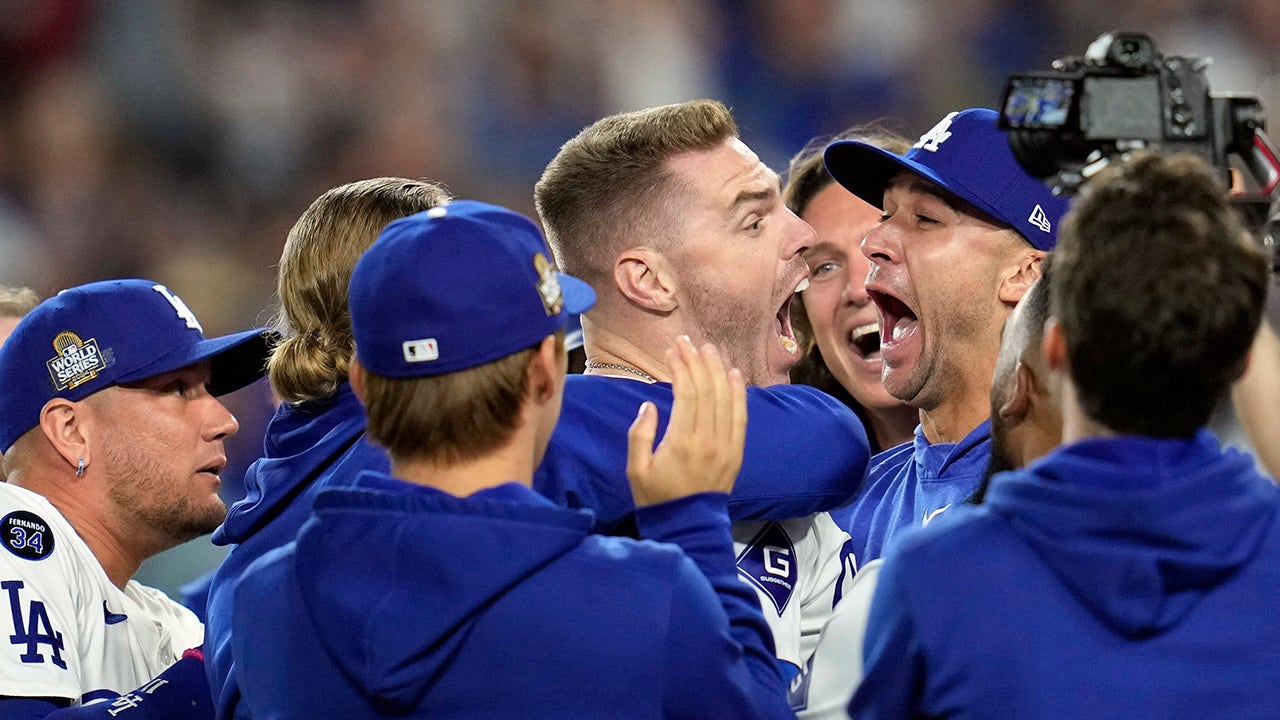
 Sports6 days ago
Sports6 days agoFreddie Freeman's walk-off grand slam gives Dodgers Game 1 World Series win vs. Yankees
-
News5 days ago
Sikh separatist, targeted once for assassination, says India still trying to kill him
-

 Culture5 days ago
Culture5 days agoFreddie Freeman wallops his way into World Series history with walk-off slam that’ll float forever
-

 Technology4 days ago
Technology4 days agoWhen a Facebook friend request turns into a hacker’s trap
